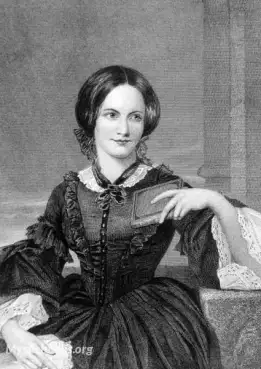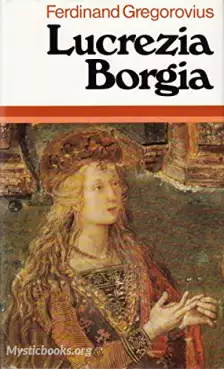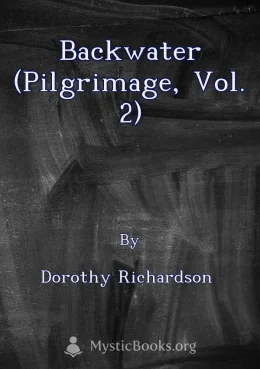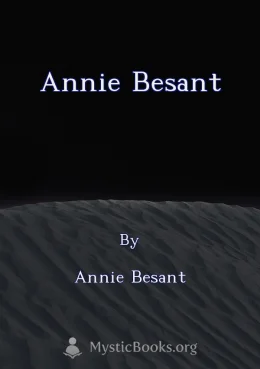
Villette
'Villette' Summary
Villette begins with its famously passive protagonist, Lucy Snowe, age 14, staying at the home of her godmother Mrs. Bretton in "the clean and ancient town of Bretton", in England. Also in residence are Mrs. Bretton's teenaged son, John Graham Bretton (whom the family calls Graham), and a young visitor, Paulina Home (who is called Polly). Polly is a serious little girl who soon develops a deep devotion to Graham, who showers her with attention. But Polly's visit is cut short when her father arrives to summon her to live with him abroad.
For reasons that are not stated, Lucy leaves Mrs. Bretton's home a few weeks after Polly's departure. Some years pass, during which an unspecified family tragedy leaves Lucy without family, home, or means. After some initial hesitation, she is hired as a caregiver by Miss Marchmont, a rheumatic crippled woman. Lucy is soon accustomed to her work and has begun to feel content with her quiet, frugal lifestyle.
The night of a dramatic storm, Miss Marchmont regains all her energy and feels young again. She shares with Lucy her sad love story of 30 years ago, and concludes that she should treat Lucy better and be a better person. She believes that death will reunite her with her dead lover. The next morning, Lucy finds Miss Marchmont died in the night.
Lucy then leaves the English countryside and goes to London. At the age of 23, she boards a ship for Labassecour (Belgium) despite knowing very little French. She travels to the city of Villette, where she finds employment as a bonne (nanny) at Mme. Beck's boarding school for girls. (This school is seen as being based upon the Hégers' Brussels pensionnat). After a time, she is hired to teach English at the school, in addition to having to mind Mme. Beck's three children. She thrives despite Mme. Beck's constant surveillance of the staff and students.
"Dr. John," a handsome English doctor, frequently visits the school at the behest of Mme Beck, and deepens his love for the coquette Ginevra Fanshawe. In one of Villette's famous plot twists, "Dr. John" is later revealed to be John Graham Bretton, a fact that Lucy has known since he asked her why she was staring at him once, but has deliberately concealed from the reader. Graham recognises Lucy only after she is brought to Mrs. Bretton's new home after collapsing from fever and mental exhaustion during the Christmas break. After Dr. John (i.e., Graham) discovers Ginevra's classless character while at the theatre, he turns his attention to Lucy, and they become close friends. She values this friendship highly despite her usual emotional reserve.
Lucy and Graham meet Polly (Paulina Home) again at the same theater; her father has inherited the title "de Bassompierre" and is now a Count. Thus her name is now Paulina Home de Bassompierre. Polly and Graham soon discover that they knew each other in the past and slowly renew their friendship. They fall in love and eventually marry.
Lucy becomes progressively closer to a colleague, the irascible, autocratic, and confrontational professor, M. Paul Emanuel, a relative of Mme. Beck. Lucy gradually realises that his apparent antagonism is actually helping her to overcome her weaknesses and to grow. She and Paul eventually fall in love.
However, a group of conspiring antagonists, including Mme. Beck, the priest Père Silas, and the relatives of M. Paul's long-dead fiancée, work to keep the two apart, on the grounds that a union between a Catholic and a Protestant is impossible. They finally succeed in forcing M. Paul's departure for the West Indies to oversee a plantation there. He nonetheless declares his love for Lucy before his departure and arranges for her to live independently as the headmistress of her own day school, which she later expands into a pensionnat (boarding school).
During the course of the novel, Lucy has three encounters with the figure of a nun — which may be the ghost of a nun who was buried alive on the school's grounds as punishment for breaking her vow of chastity. In a highly symbolic scene near the end of the novel, she discovers the "nun's" habit in her bed and destroys it. She later finds out that it was a disguise worn by Ginevra's amour, Alfred de Hamal, placed in Lucy's bed as a prank. The episodes with the nun no doubt contributed substantially to the novel's reputation as a gothic novel. Ginevra keeps in contact with Lucy through letters that show the young coquette has not changed and expects to live off of her uncle's (Basompierre's) good graces.
Villette's final pages are ambiguous. Although Lucy says that she wants to leave the reader free to imagine a happy ending, she hints strongly that M. Paul's ship was destroyed by a storm during his return journey from the West Indies. She says that, "M. Emanuel was away three years. Reader, they were the three happiest years of my life." This passage suggests that he was drowned by the "destroying angel of tempest."
Brontë described the ambiguity of the ending as a "little puzzle"
Book Details
Language
EnglishOriginal Language
EnglishPublished In
1853Authors

Charlotte Brontë
England
Charlotte Brontë (21 April 1816 – 31 March 1855) was an English novelist and poet, the eldest of the three Brontë sisters who survived into adulthood and whose novels became classics o...
Books by Charlotte BrontëDownload eBooks
Listen/Download Audiobook
Related books

Lucretia Borgia by Ferdinand Gregorovius
According to Original Documents and Correspondence of Her Day. Lucretia Borgia is the most unfortunate woman in modern history. Is this because she wa...

The dogaressas of Venice: The wives of the doges by Edgcumbe Staley
It is a fascinating historical book by Edgcumbe Staley that sheds light on the powerful women who played a crucial role in the political and cultural...

Emma McChesney and Company by Edna Ferber
Emma McChesney and Company is the final installment in the Emma McChesney trilogy, following the spirited and successful businesswoman as she navigate...

Backwater (Pilgrimage, Vol. 2) by Dorothy Richardson
In "Backwater," Dorothy Richardson's second novel in the "Pilgrimage" series, Miriam Henderson, the central character, continues her journey of self-d...

Childhood - Детство by Leo Tolstoy
Childhood (Детство [Detstvo]; 1852) is the first novel in Leo Tolstoy’s autobiographical trilogy. They are the works that launched his writing career....

Lives of the Most Eminent Painters, Sculptors and Architects Vol 8 by Giorgio Vasari
The Lives of the Most Excellent Painters, Sculptors, and Architects often simply known as The Lives is a series of artist biographies written by 16th-...

Annie Besant by Annie Besant
Annie Besant's autobiography recounts her journey of self-discovery and spiritual awakening. Growing up in a Christian environment, she gradually aban...

My Musical Life by Walter Damrosch
'My Musical Life' is a personal account of the life and career of Walter Damrosch, a renowned conductor who played a significant role in the developme...

The Autobiography of a Slander by Edna Lyall
A gossipy old woman, an impressionable young girl, a narrow-minded curate, a letter written while bored, a scrap of dinner party conversation intended...

An Authentic Narrative of Some Remarkable and Interesting Particulars in the Life of John Newton by John Newton
his former life as a slave trader and as eventual opponent of the slave trade in Britain. These 14 short letters cover his early life to about 1755 an...
Reviews for Villette
No reviews posted or approved, yet...